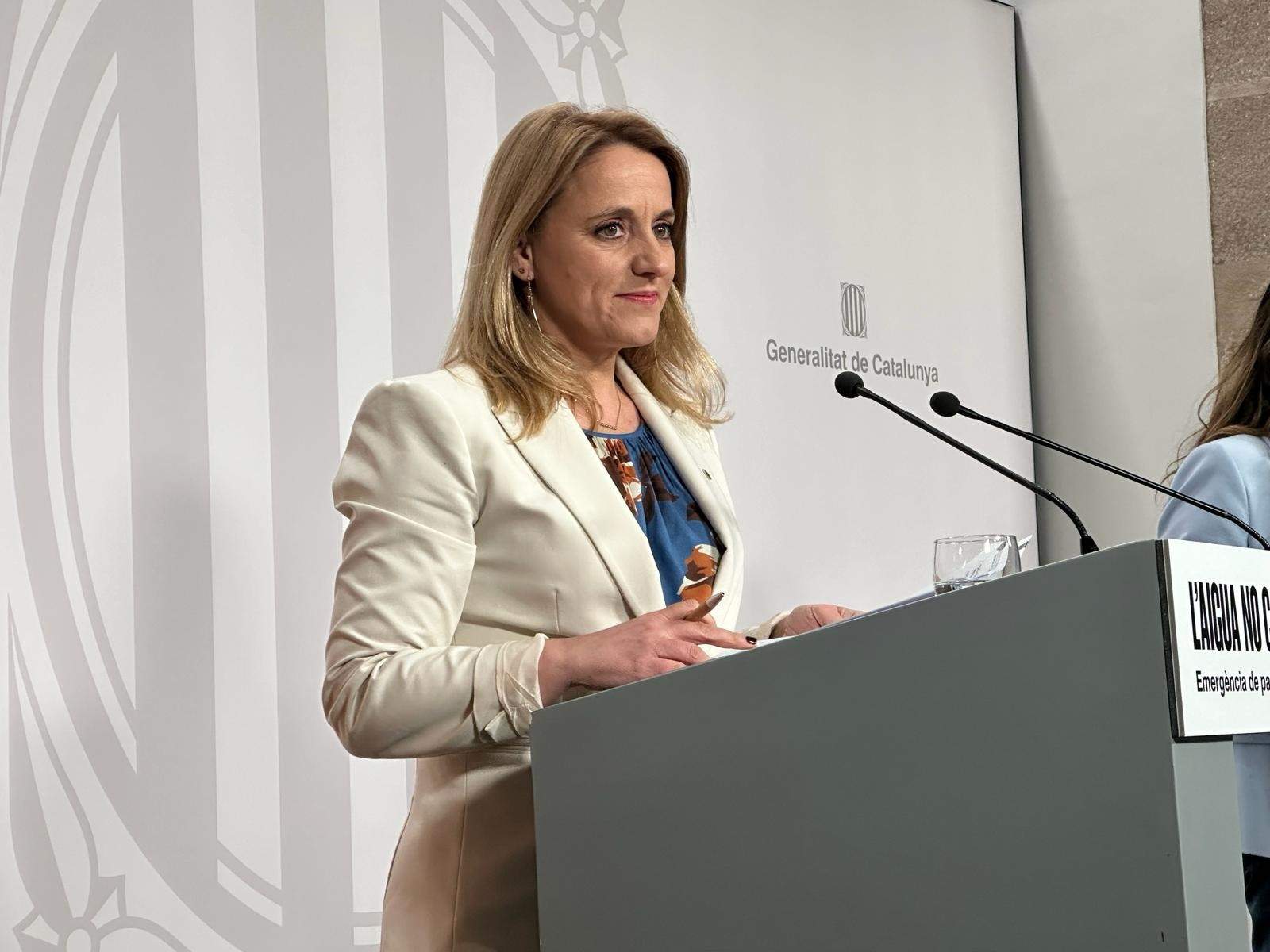The Catalan government's unique financing proposal, presented this Tuesday, foresees that Catalonia will collect 100% of taxes paid in Catalonia, in order to have the key to a cash box of around 52 billion euros a year, twice as much as with the current model, according to the Catalan economy and treasury minister, Natàlia Mas, in a press conference. The new model envisages that Catalonia will make a contribution to the state for the services it provides, as well as a new fund for territorial rebalancing. Presenting the plan at an unusual political moment - given that an early Catalan election has been called for May 12th - the Catalan government nevertheless asserted that it was important to go ahead with the proposal, given that the Catalan government has not reverted to "acting status" and, as spokesperson Patricia Plaja argued, the model will begin to be discussed and negotiated and could be adopted by the next Catalan government. However, the first response from Madrid poured cold water on the new model, with Spanish economy minister Carlos Cuerpo asserting the need for a new model to arise from "dialogue" between all the autonomous communities.
"Full fiscal sovereignty" for Catalonia
"We are presenting a paradigm shift to leave behind decades of injustice," the minister Mas argued. The proposed new financing model is based on "full fiscal sovereignty" - that is, the Catalan government would collect and manage taxes such as VAT, personal income tax, corporate tax and special taxes, an increase in its tax involvement from the current level of 9% of taxes to 100%. The Generalitat could receive double the 25.6 billion euros it received with the current model in 2021.
The proposal, defended by the administration as fully constitutional, foresees a transfer to the state for services it provides, such as defence and the administration of justice and payment into a "territorial rebalancing" fund for autonomous communities with fewer resources. "It is a fair, reasonable and essential proposal," said the minister.
The proposal is accompanied by a legal report to demonstrate that it is compatible with the Catalan Statute of Autonomy, the Spanish Constitution and European legislation. In fact, Mas repeatedly defended that it is a system similar to that of "all the countries that have fiscal federalism", and gave Canada as an example. There, no region contributes even 4% of its GDP as a solidarity payment (less than half of what Catalonia currently contributes), but the minister avoided making comparison in terms of figures, which she did not want to detail. "You cannot enter into a negotiation showing your cards or with metrics that condition the entire negotiation”, she said.
What she did admit is that one of the major objectives of the proposal is to reduce the fiscal deficit that has long existed between what Catalan pays into the state in taxes and what it receives back in investment and state expenditure. She did not put figures on how much more net income the new scheme should represent, but gave some hints: "In health, in order to invest the EU average figure, we would need more than 10 billion euros more. In education, 3,900 million".
Four shortcomings of the current model
The Catalan minister detailed the four shortcomings of the current financing model which, in her opinion, make a new model necessary. The first is a "vertical imbalance, which is getting worse every year", since the state's income has grown twice as much as that of the autonomous communities in recent years. The second is "the little financial autonomy in the communities, derived from the little taxation autonomy; we only collect 9% of the taxes we generate, it's an anomaly at European level".
The third deficiency is the "horizontal imbalance", since the levelling system between territories, which the Catalan administration agrees must exist, "must be fair and reasonable", but according to Mas, it is not because it does not respect the principle of ordinality. The fourth is "institutional disloyalty", since the funding model "must be updated every five years and if there are changes that affect the model, it must be modified", but it has not been done - even though the state has increased the taxes it is collecting, it has not compensated the autonomour governments.
Spanish government: a new model must come from "dialogue" between all communities
The Spanish government has quickly re-stated its closed-door posture to the possibility of Catalonia having a unique financing model. The response of Spanish economy minister Carlos Cuerpo, speaking after this Tuesday's weekly cabinet meeting, was that any new financing model must arise from "dialogue" between all the autonomous communities. This was later confirmed by the spokesperson for the executive, Pilar Alegría, who asked the People's Party (PP) to participate in the creation of a new model, give that the PP have, at present, more regional power than the Socialists (PSOE) following the autonomous community elections of May 2023. "Our will is to reach an agreement with all the autonomous communities", said Pilar Alegría.

